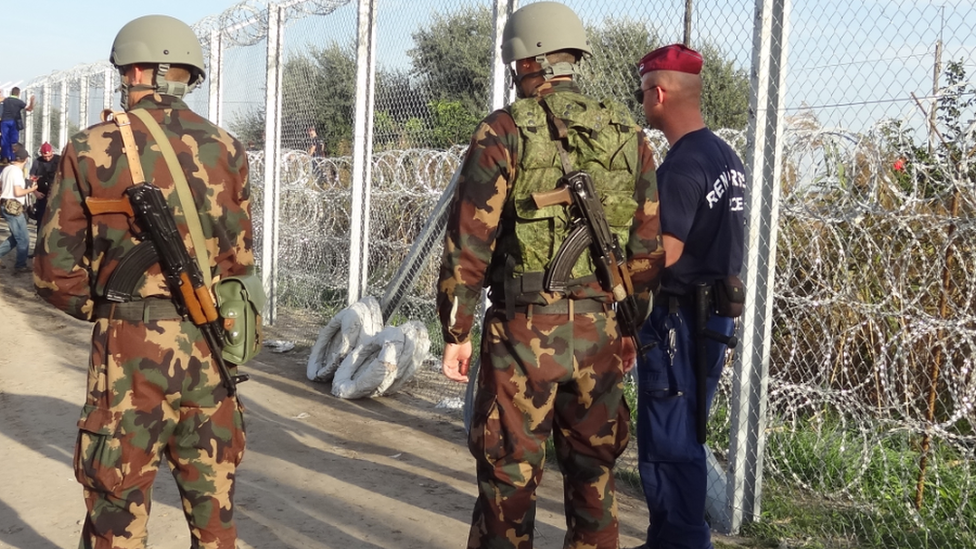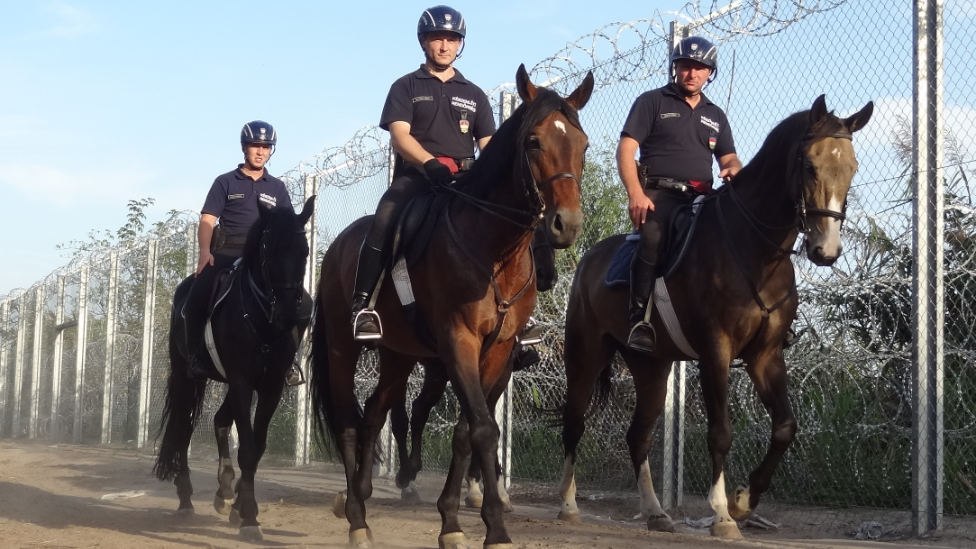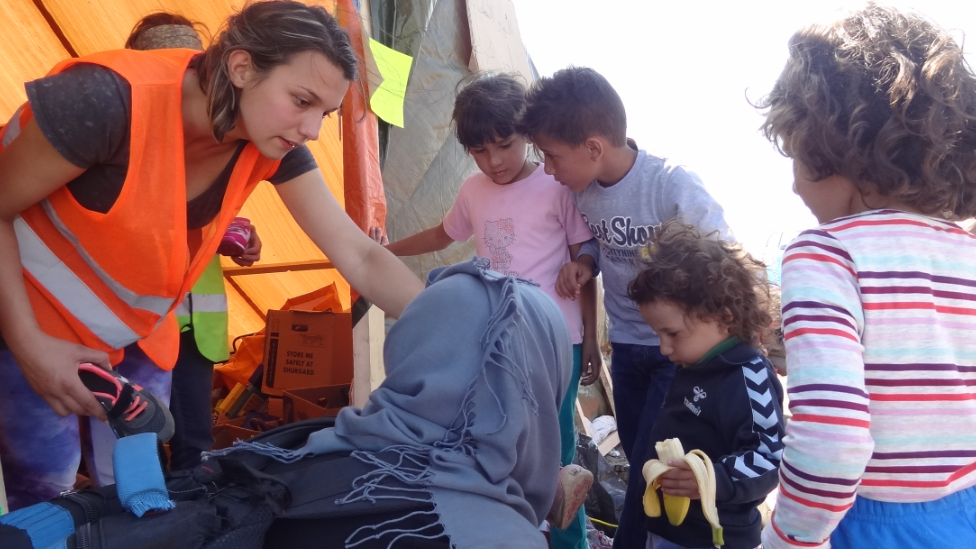Migrant crisis: Will Hungarian clampdown work?
- Published

The Hungarian army is now guarding the southern border alongside police
Hungary has sealed the last gaps in its new border fence to migrants, and the authorities will decide later on whether to declare a state of emergency along the border with Serbia.
Extra police, army, and now judges have been drafted into the region.
Pressed by Hungarian TV2 on whether he would declare an emergency, Hungarian Prime Minister Viktor Orban replied: "If you want to place a bet on it, I would say go ahead."
He also said that Hungary had so far spent €200m (£147m; $226m) to handle the refugee crisis, and had only received €4m from the European Union.
"Boards will be placed along the border which state clearly what people should do if they want to enter Hungary legally. They can then go to official crossing points and fill in the papers," Mr Orban said.
They will be asked if they applied for asylum in Serbia.
"As we regard Serbia as a safe country, if they did not apply for asylum there, their request for asylum in Hungary will be rejected," the prime minister added.
Judges on standby
Private conversations with Hungarian officials suggest only a few dozen, at most a few hundred asylum applications, will be accepted each year.

Hungarian mounted police patrol the newly-built fence
In 2014, Hungary granted asylum to 260 people and protected status to a similar number out of 43,000 applicants.
Most applicants abandoned their claims and carried on to Western Europe.
Since the start of September, 35,000 migrants have been registered by the police, bringing the total to more than 200,000 for the year.
Aid workers in the past days have been mainly treating blisters and leg injuries, as people rushed up through the Balkans without rest to reach Hungary by Monday night.
Thirty judges have been put on standby to rule in cases of asylum seekers who illegally cross the Serbian border into Hungary. Another 50 will be drafted in from other parts of the country.
All criminal cases in the city of Szeged, 14km from the border at Roszke, have been suspended until further notice.
The ground floor of the county court and another building currently used by the refugee authorities have been made available.
The moves are the latest in Viktor Orban's response to the migrant crisis.
With or without the state of emergency, recent amendments to the penal code make both illegal border-crossing and damaging the new fence a criminal offence, which can be punished with jail sentences of up to three years.
In the corridors of the county court in Szeged, however, judges suggest they intend to expel asylum seekers from Hungary, rather than imprison them in already overcrowded jails.
'We are dying'
How refugees will react to the Hungarian clampdown is hard to gauge.

Many migrants want to move on to wealthier EU members such as Germany and Sweden
"Please don't stop us," said Saad, from Aleppo, one of the last to cross safely into Hungary on Monday, before the railway track was blocked.
"We are not going to stay here, we are going to go all over the world. We are dying there (in Syria), we are dying everywhere."
He spent a week in the same hotel with three-year-old Alan Kurdi and his family, he said. And wept when he saw the pictures of the drowned child.
As darkness fell on Monday night, a locomotive and a single wagon unloaded coils of razor wire on the barrier across the railway, and those migrants who were unable to cross set out on the 12km walk to Kiralyhalom, the next border crossing point.
The previous day, I drove the same section, and counted 17 points at which the fence had been breached.
If the fence does prove too difficult to cross, many people may loop round to cross through Hungary's still almost unguarded borders with Romania (450km) or Croatia (350km).
On Monday, an Austrian judge refused to deport an Afghan woman on the grounds that Hungary "is no longer a safe place for refugees".